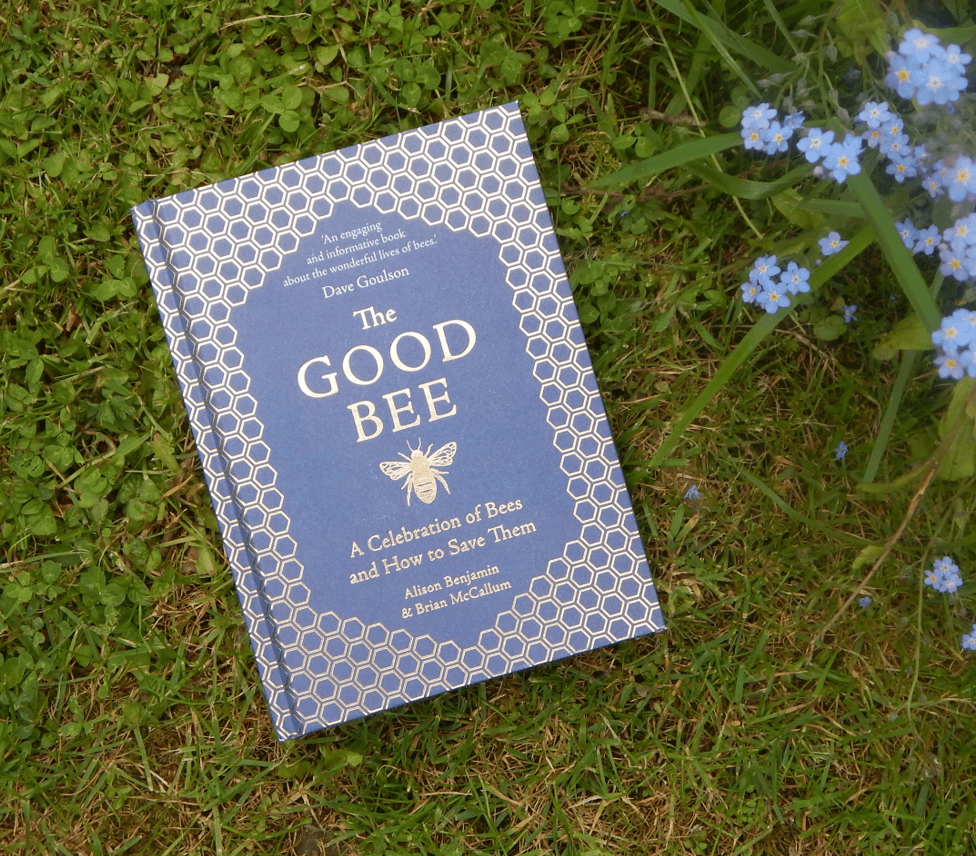Book Review:
"The GOOD BEE
- A Celebration of Bees and How to Save Them"
- by Alison Benjamin and Brian McCallum
This beautifully written, illustrated and presented hardcover book will be a pleasure not only to read, but to give to a friend or loved one. Even if they are not curious about bees now, they may be surprised. It could be the beginning of a new-found fascination - and love!
Written by Guardian journalist Alison Benjamin, and former government bee inspector, Brian McCallum (both urban beekeepers in London), this is a book written with genuine warmth, and is a wonderful tribute to bees, including the many species of solitary bee that most people are barely aware of.
It’s a small book, but the authors manage to pack in a lot of fascinating facts and information about the charming and enigmatic bee. Indeed, the reader will learn much from this adorable book: about the different kinds of nesting habits, mating and ‘courtship’ styles, predators, and how bees forage for food and collect materials to build nests. We can also read about the long relationship humans have had with bees, their importance to us, as well as read of the authors' experiences of beekeeping.

The style is engaging, for example:
|
“The hairy-footed flower bee has a
cleptoparasite in the common mourning bee (Melecta
albifrons), who has striking white spots down the side of her dark, fluffy
abdomen. But don’t be fooled by her cute
appearance; she shows no mercy to our flower bee. She will sneak into the nest and lay her
eggs, which will hatch first and gobble up the flower bees’ eggs or larvae and
all the stored pollen." |
- and offers wise, reassuring advice…....
|
“There is no point trying to intervene to
defend these cuckooed bees. Nature works
in mysterious ways, and we must respect that.
If you see cuckoo bees it means the population of its host is healthy.” |
Though Alison and Brian are themselves beekeepers, they are under no illusions that honey bees are not necessarily the best pollinators of all crops (despite them being extremely important for many), and that many other species deserve recognition. In this book, mason bees, flower bees, alkali, carpenter, bumble, stingless and leafcutters all get their turn in the limelight. In addition, the insight the authors provide into the US pollination industry serves both as a warning as to the dangers of harming populations of important native pollinators, and as encouragement to recognize the value of the different types of bees.
As well as highlighting the plight of bees, there is of course, practical advice about how we can all do our bit to help them. It’s worth pointing out that Alison Benjamin herself began beekeeping from the small overgrown garden of her London flat, and both authors have helped to establish apiaries around the great city. They write from both experience and faith that helping bees is possible and feasible, even in busy urban environments.
Finally,
I’ll return to a statement the authors make in their introduction:
|
“….you
can’t save what you don’t love, and you can’t love what you don’t know. So, we hope this book will first and foremost
help people fall in love with the bees around them”. |
I of course share this philosophy, and think the authors achieve their aim. This beautifully written, illustrated and presented hardcover book will be a pleasure not only to read, but to give to a friend or loved one. Even if they are not curious about bees now, they may be surprised. It could be the beginning of a new-found fascination - and love! In short, it’s a wonderful book, and I heartily recommended it.
The Good Bee is available from Amazon and book stores.
If you found this page helpful or interesting, I'd really be grateful if you would share it with others - if not this page, perhaps another, such as Gardening For Bees.
Thank you so much :) .
